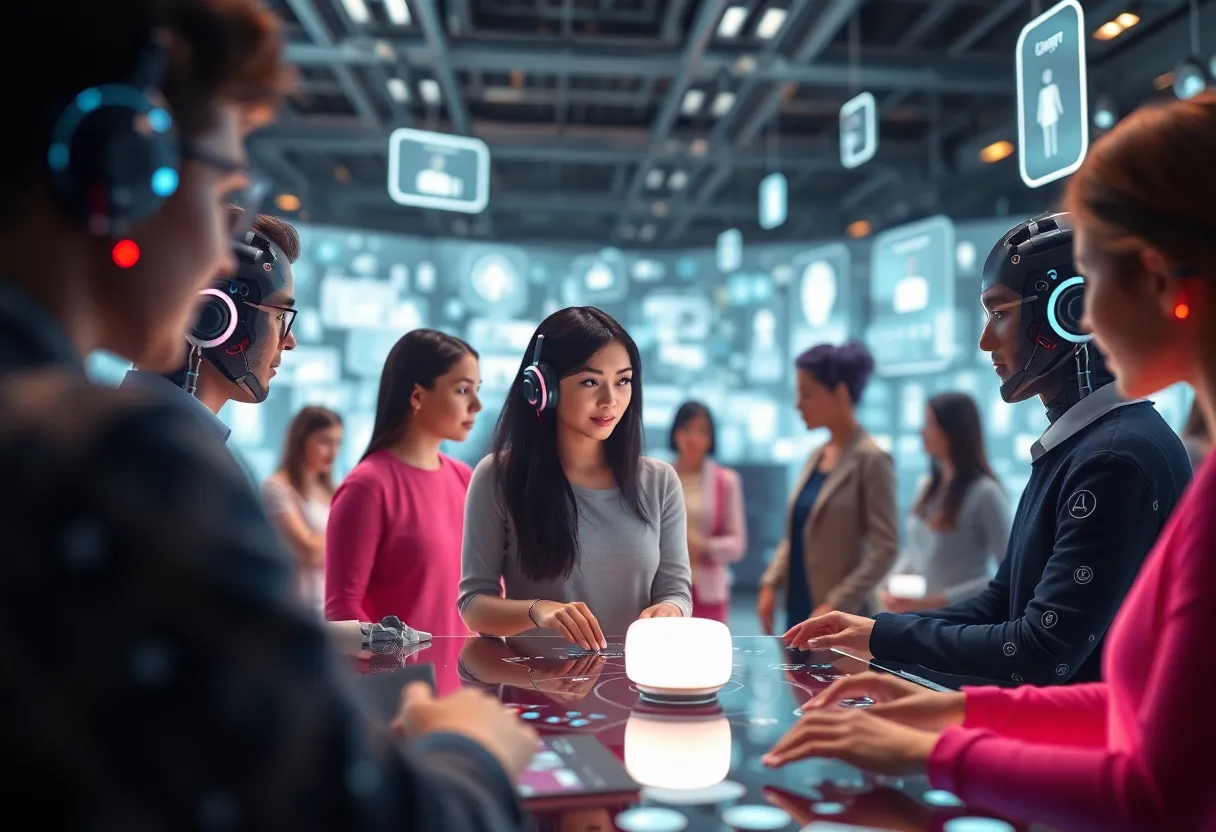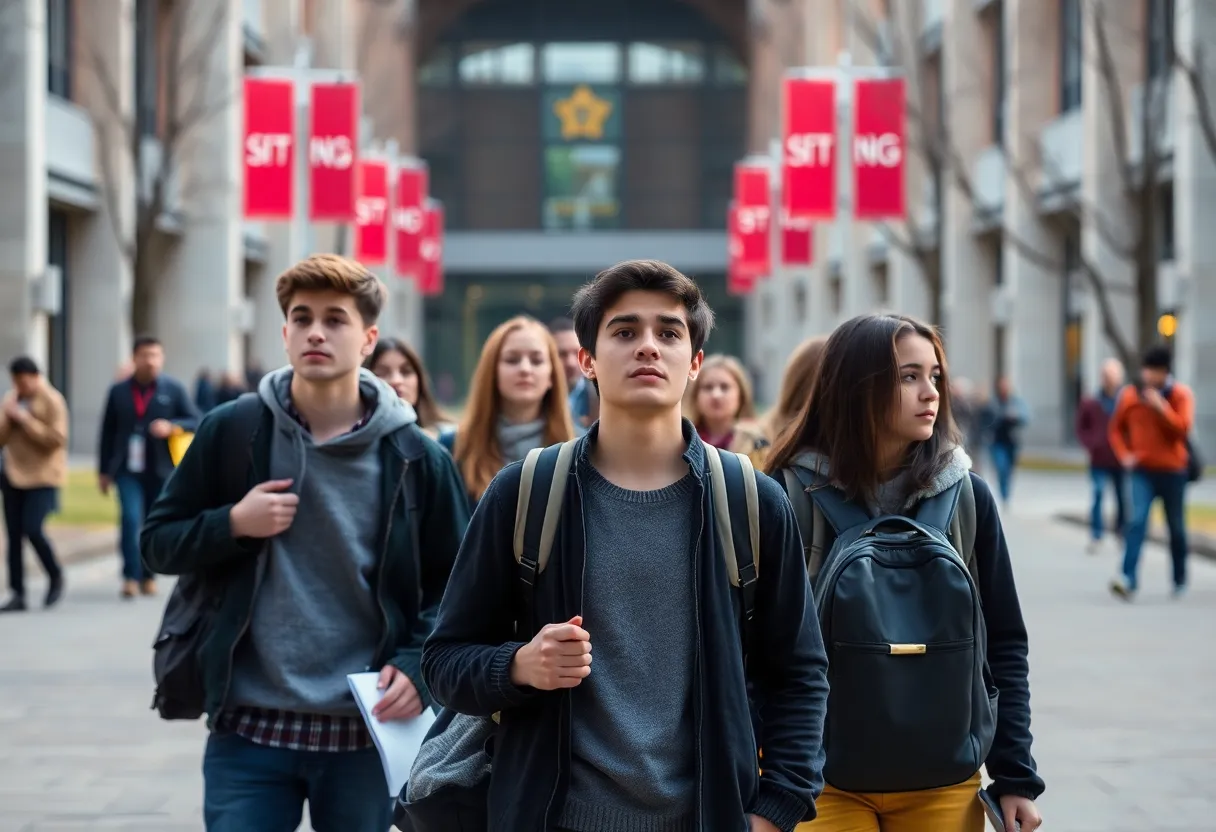News Summary
Meta is taking a bold leap into artificial intelligence by introducing AI-generated profiles that mimic human behavior on social media platforms like Facebook and Instagram. This move aims to enhance user engagement and follower counts, but raises critical questions surrounding authenticity and mental health. Experts express concerns over the implications of these AI profiles, questioning whether they will enrich social interactions or foster social isolation. Additionally, the potential for misinformation and ethical dilemmas in identity representation adds layers to the ongoing debate about AI’s place in our digital lives.
Meta’s New AI Characters Spark Conversations About Engagement and Authenticity
In a move that’s both exciting and a bit unsettling, Meta is ramping up its focus on artificial intelligence (AI) in social media. They’re diving headfirst into the idea of creating AI-generated profiles that mimic human behavior. How does that sound for the future of your feed?
Aiming for More Engagement
The drive behind this integration? It seems Meta wants to take user engagement up a notch and boost follower counts across its platforms, notably Facebook and Instagram. Speaking of Facebook, it’s important to note that around 3 billion users log on regularly, which represents an impressive 37% of the global population. Just imagine the level of engagement these AI characters could potentially achieve!
Although these AI profiles are designed to deliver that satisfying dopamine hit we all chase when we get likes and comments, they may hit a snag when it comes to authenticity. After all, how does one feel about interacting with a profile that’s not even real?
The Rise of AI Profiles
Interestingly, there have already been murmurs about AI-generated profiles making their rounds in the social media landscape, with whispers of Meta having tested AI bot accounts. The company’s ultimate goal seems crystal clear: boost engagement statistics and encourage users to create more content.
The Mental Health Dilemma
However, it’s not all sunshine and rainbows. Experts are raising alarms about the potential mental health impacts that might arise from developing relationships with these AI avatars. For some, these interactions could further enhance feelings of social isolation, already a significant concern in our digitally-driven lives.
Questions of Misinformation
Moreover, there are big concerns surrounding misinformation. During recent elections in the U.S., AI-generated misinformation only accounted for less than 1% of all fact-checked content, but what if the technology evolves to produce even more misleading information? We could find ourselves in a messy situation, trying to decipher what’s real and what’s not.
A Double-Edged Sword
On one hand, the ability of AI to democratize creation is a thrilling prospect, empowering a broader range of artistic expression. However, this comes with the risk of flooding the market with content that might lack the emotional depth only a human can convey.
The Emergence of AI Agents
New AI “agents” are also developing, which could perform tasks like booking travel or managing preferences on behalf of users. This advancement could change how marketing works and how we interact with brands. Efficiency at what cost, you might ask? While AI can make creating ads easier through machine learning, it raises alarms about overshadowing human creativity.
The Fine Line Between AI and Humanity
Industry experts weigh in, stressing that while AI can enhance efficiency, the essence of meaningful human connections in marketing is something that simply can’t be replaced. It’s essential for resonating with audiences and creating authentic engagement, wouldn’t you agree?
Authenticity Under Scrutiny
The rapid roll-out of AI avatars and bots on Meta’s platforms may leave many users questioning the authenticity of their social interactions. Traditional social networks have been known for genuine human connection—will that all change with these new accounts?
Ethics and Future Exploration
Issues also arise when AI bots misrepresent demographic identities, igniting debates about ethical AI deployment in social spaces. Despite hesitations from both users and experts, Meta seems committed to exploring the implications and user experiences related to AI-generated interactions. One has to wonder whether this fascination with AI will truly enhance our social experience or detract from it.
As we stand at this crossroad, only time will tell how Meta’s integration of AI characters pans out. Will they enhance our social media interactions, or lead us down a path toward less authenticity? Stay tuned!
Deeper Dive: News & Info About This Topic
HERE Resources
Duolingo’s Rise: Navigating Culture and Trends in Language Learning
How to Use Storytelling to Capture Your Audience’s Attention in Digital Marketing
New Orleans Gears Up for Big Game and Anticipation for Squid Game Season 2!
Birmingham Sidewalk Skirmish Leads to Arrest After Friendly Stroll Turns Tumultuous
San Francisco Businesses Embrace Mobile Marketing for Holiday Season as Consumer Engagement Evolves
New Orleans Prepares for an Exciting Weekend with Moana 2 Launch and The Big Game
Birmingham Village Players to Present Witty Comedy “Present Laughter” This December
Downtown Birmingham Sparks Holiday Cheer with Festive Events and Celebrations
Farmington Hills Debuts Groundbreaking Musical “Charlie Hu$tle” Centered on Baseball Icon Pete Rose
Novi Set to Host Thrilling Motor City Comic Con This Weekend!
Additional Resources
- Social Media Today: Meta’s AI Bot Plan to Boost Engagement
- Neuse News: Insights into Marketing through AI and Social Media
- CyberNews: How Artificial Intelligence Hijacked Social Media Democracy
- Financial Times: AI Impact on Social Media and User Engagement
- Social Media Today: AI Characters Driving Engagement in Social Apps








